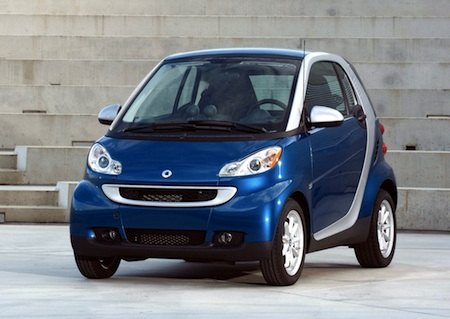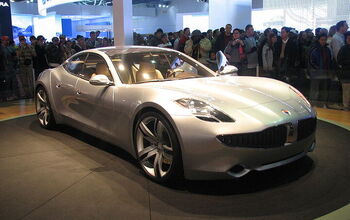Ask The Best And Brightest: Which Brand Is Next For A Death Watch?

Gamblers, speculators, automotive industry sadists, and TTAC Best and Brightest™: welcome to the selection of the next candidates for Death Watch, where you get to have a say on which brand we should promote to the Throne of Irrelevancy.
After the events of Monday – American Suzuki’s Chapter 11 filing and subsequent ending of new car sales in the United States – there are still a few brands which are hanging out at the cliff waiting for a final push or in dire need of a savior to bring them back to the collective consciousness of the buying public.
Thanks to Timothy Cain’s Good Car, Bad Car, the latest sales numbers as of October 2012 have been tabulated and here are the brands who have sold under 100,000 units for the first 10 months of the year (excluding high-luxury brands, Maserati and Bentley):
Infiniti: 95,353 YTD, +20.6% vs 2011
There isn’t much red ink in this list, but the red ink that does exist tells an interesting story about each company.
Mitsubishi, with double digit percentage losses in sales over last year, is losing nameplates and has only introduced a low volume electric vehicle, the i-MiEV, and the new Outlander Sport/RVR in the last couple of years. The Lancer, a sharp looking car when first introduced, garners horrible fuel mileage and is getting on in age with no replacement in sight. Also, Mitsubishi’s volume seller, the Colt, isn’t available in the US or Canada. I could go on and on about the faults of Mitsubishi’s line-up and lack of excitement regarding future product, but my keyboard can only take so many keystrokes in a lifespan.
Then we get to Lincoln, which has turned into more a trim level for Ford products than an actual brand of its own and has been struggling for years to remain relevant. Ford did the right thing when euthanizing Mercury (it was only available in the US as it had been previously killed in Canada years before). Lincoln, on the other hand, has to survive in some form or another if Ford wants to successfully amortize the millions of dollars spent inventing in its platforms. With no real publicly known plan or future product exciting those of us under the age of 103, Lincoln’s continued existence looks bleak.
Which brings us to one of Ford’s previous properties, Volvo, which was sold off to Geely so the Dearborn automaker could pay its bills. Volvo may be popular in certain areas, but for the most part it has become a brand lost between volume and luxury. Volvo’s newest model, the V40, won’t even be making it to North American shores, which is a very telling move on behalf of the Chinese-owned Swedish brand. The always fashionable C30 hatch will be going the way of the dodo before not too long. And, Volvo’s line-up is SUV heavy, with only the S60 as a newer sedan in their range. Does Geely care about the North American market? Or would it rather bolster Volvo’s image in China while spurring on sales in Europe? Time will tell.
So, with that said, what do you think is the next brand to take a long drive off a short pier? Are we at the end of the Car Cull? Or are there still a few companies looking to exit stage left?

More by Mark Stevenson
Latest Car Reviews
Read moreLatest Product Reviews
Read moreRecent Comments
- Slavuta Autonomous cars can be used by terrorists.
- W Conrad I'm not afraid of them, but they aren't needed for everyone or everywhere. Long haul and highway driving sure, but in the city, nope.
- Jalop1991 In a manner similar to PHEV being the correct answer, I declare RPVs to be the correct answer here.We're doing it with certain aircraft; why not with cars on the ground, using hardware and tools like Telsa's "FSD" or GM's "SuperCruise" as the base?Take the local Uber driver out of the car, and put him in a professional centralized environment from where he drives me around. The system and the individual car can have awareness as well as gates, but he's responsible for the driving.Put the tech into my car, and let me buy it as needed. I need someone else to drive me home; hit the button and voila, I've hired a driver for the moment. I don't want to drive 11 hours to my vacation spot; hire the remote pilot for that. When I get there, I have my car and he's still at his normal location, piloting cars for other people.The system would allow for driver rest period, like what's required for truckers, so I might end up with multiple people driving me to the coast. I don't care. And they don't have to be physically with me, therefore they can be way cheaper.Charge taxi-type per-mile rates. For long drives, offer per-trip rates. Offer subscriptions, including miles/hours. Whatever.(And for grins, dress the remote pilots all as Johnnie.)Start this out with big rigs. Take the trucker away from the long haul driving, and let him be there for emergencies and the short haul parts of the trip.And in a manner similar to PHEVs being discredited, I fully expect to be razzed for this brilliant idea (not unlike how Alan Kay wasn't recognized until many many years later for his Dynabook vision).
- B-BodyBuick84 Not afraid of AV's as I highly doubt they will ever be %100 viable for our roads. Stop-and-go downtown city or rush hour highway traffic? I can see that, but otherwise there's simply too many variables. Bad weather conditions, faded road lines or markings, reflective surfaces with glare, etc. There's also the issue of cultural norms. About a decade ago there was actually an online test called 'The Morality Machine' one could do online where you were in control of an AV and choose what action to take when a crash was inevitable. I think something like 2.5 million people across the world participated? For example, do you hit and most likely kill the elderly couple strolling across the crosswalk or crash the vehicle into a cement barrier and almost certainly cause the death of the vehicle occupants? What if it's a parent and child? In N. America 98% of people choose to hit the elderly couple and save themselves while in Asia, the exact opposite happened where 98% choose to hit the parent and child. Why? Cultural differences. Asia puts a lot of emphasis on respecting their elderly while N. America has a culture of 'save/ protect the children'. Are these AV's going to respect that culture? Is a VW Jetta or Buick Envision AV going to have different programming depending on whether it's sold in Canada or Taiwan? how's that going to effect legislation and legal battles when a crash inevitibly does happen? These are the true barriers to mass AV adoption, and in the 10 years since that test came out, there has been zero answers or progress on this matter. So no, I'm not afraid of AV's simply because with the exception of a few specific situations, most avenues are going to prove to be a dead-end for automakers.
- Mike Bradley Autonomous cars were developed in Silicon Valley. For new products there, the standard business plan is to put a barely-functioning product on the market right away and wait for the early-adopter customers to find the flaws. That's exactly what's happened. Detroit's plan is pretty much the opposite, but Detroit isn't developing this product. That's why dealers, for instance, haven't been trained in the cars.


































Comments
Join the conversation
"excluding high-luxury brands, Maserati and Bentley" How to interpret this line? 1) High-luxury brands plus Maserati and Bentley? So, both are considered a grade lower than Ferrari and RR, and thus not high-luxury brands? 2) High-luxury brands as Maserati and Bentley? In that case, either Ferrari is not a high-luxury brand, or it sold more than 100,000 YoD. Impressive.
I saw a new Galant today and I laughed a bit out loud. Mitsubishi is next. Rightfully so.